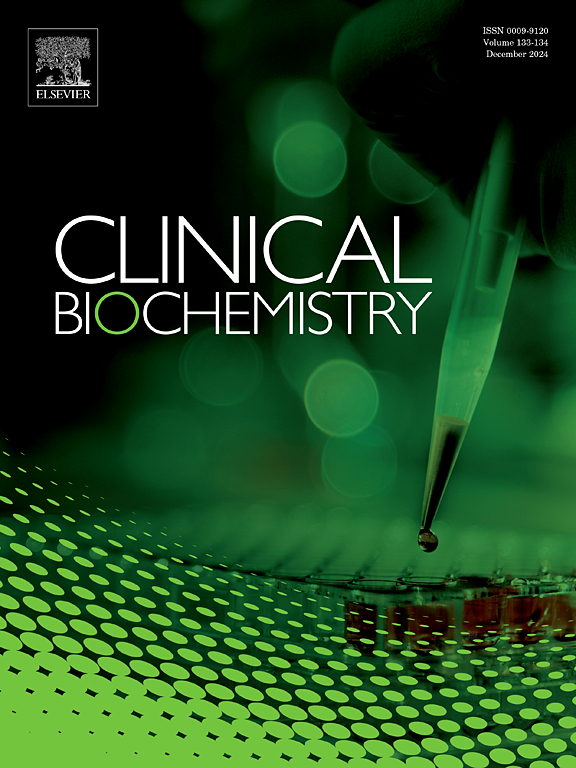Choosing Wisely Canada recommendations for clinical biochemistry: test ordering for sustainable and high-quality patient care
IF 2.1
3区 医学
Q2 MEDICAL LABORATORY TECHNOLOGY
引用次数: 0
Abstract
Laboratory Medicine is growing at a rapid rate in both the breadth of unique tests and the total number of tests performed per year. Inappropriate overutilization of laboratory tests can lead to patient harm, excessive environmental waste and increased carbon emissions. A focus on reducing inefficiencies in healthcare is needed to ensure a robust and sustainable healthcare system. To promote laboratory sustainability, the Canadian Society of Clinical Chemists (CSCC) has developed ten recommendations related to medical tests within clinical biochemistry. These recommendations are designed as ‘low-hanging fruit’ that should be adopted by both hospital and community laboratories. By implementing automated strategies and/or educational approaches to reduce misuse of laboratory resources, clinical laboratories can move toward a more sustainable model that improves patient care. This list of recommendations, created for Choosing Wisely Canada, covers tests for diabetes, celiac disease, monoclonal gammopathies, iron disorders, liver disorders, kidney disorders, substance use disorders, and allergen testing.
明智地选择加拿大临床生物化学建议:为可持续和高质量的病人护理测试订购。
检验医学在独特测试的广度和每年进行的测试总数方面都在快速增长。不适当地过度使用实验室检测可导致对患者的伤害、过度的环境浪费和碳排放的增加。需要注重减少医疗保健方面的低效率,以确保建立健全和可持续的医疗保健系统。为了促进实验室的可持续性,加拿大临床化学家协会(CSCC)制定了10项与临床生物化学中的医学测试有关的建议。这些建议被设计为“容易实现的目标”,应该被医院和社区实验室采用。通过实施自动化策略和/或教育方法来减少实验室资源的滥用,临床实验室可以朝着更可持续的模式发展,从而改善患者护理。这份建议清单是为《明智地选择加拿大》创建的,涵盖了糖尿病、乳糜泻、单克隆伽玛病、铁质疾病、肝脏疾病、肾脏疾病、物质使用障碍和过敏原测试。
本文章由计算机程序翻译,如有差异,请以英文原文为准。
求助全文
约1分钟内获得全文
求助全文
来源期刊

Clinical biochemistry
医学-医学实验技术
CiteScore
5.10
自引率
0.00%
发文量
151
审稿时长
25 days
期刊介绍:
Clinical Biochemistry publishes articles relating to clinical chemistry, molecular biology and genetics, therapeutic drug monitoring and toxicology, laboratory immunology and laboratory medicine in general, with the focus on analytical and clinical investigation of laboratory tests in humans used for diagnosis, prognosis, treatment and therapy, and monitoring of disease.
 求助内容:
求助内容: 应助结果提醒方式:
应助结果提醒方式:


